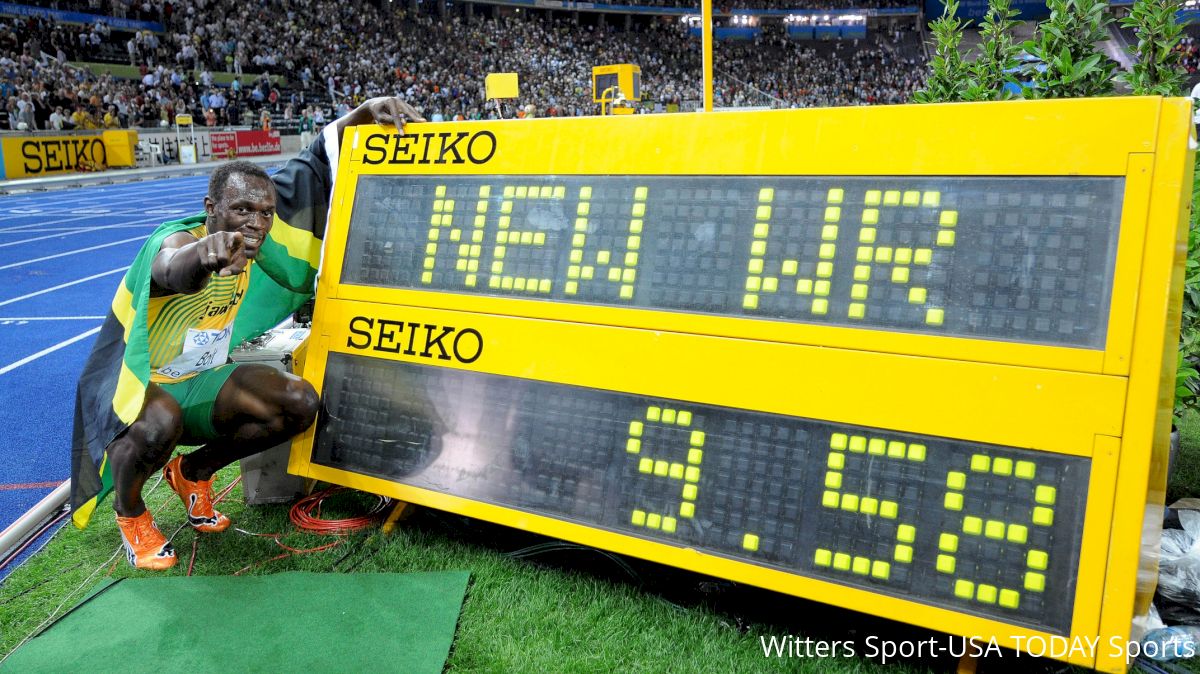Looking Back On Usain Bolt's 9.58 100m World Record
Looking Back On Usain Bolt's 9.58 100m World Record
Usain Bolt's 9.58 100m world record lives on 10 years to the day since it was run.

Do you remember where you were 10 years ago?
Much of the time I can’t recall where I was 10 minutes prior or what I ate for breakfast, but I can remember August 16, 2009, as clear as day. I was a few days away from starting my freshman year of college, eagerly anticipating dorm life and late-night food runs and peak adolescence in general. Everything was intensified around this time, with even simple things like buying new clothes or stocking up on groceries signaling that a new season of life was imminent.
Most of the memory of that pre-college summer has been jaded by the actual experience of living in a crappy dorm, eating obscene portions of mediocre food and coming to terms with real-life adulthood, but the night of August 16, 2009, remains completely intact, untarnished by the passage of time or the reality of responsibility.
It's been a decade since the fastest man in history ran his fastest race ever pic.twitter.com/R6atFwCKR6
— FloTrack (@FloTrack) August 16, 2019
That night exactly one decade ago, I sat on the kitchen counter at my parents’ house and watched a tape-delayed broadcast of Usain Bolt’s 9.58 100m world record in Berlin at the 2009 IAAF World Championships. It remains the greatest race I have ever seen, and the small role that I have since carved out for myself in track and field has convinced me that that moment stands above all others in the history of the sport.
The race didn’t just pop because it was a world record; Bolt had lowered the record twice the year before--including the Olympic final in Beijing-- and everyone expected him to drop time in Berlin. This was more than a timed sprint against a clock. Bolt’s thunderous run that night was a sensation I could feel, a goosebump-inducing masterpiece that barely needed a stopwatch to validate its supremacy. 9.58 was secondary to the moment itself, so electrifying that the clock could’ve read 8.58 and I would’ve believed it.
The adjoining call from NBC announcers Tom Hammond and Ato Boldon made it even better.
“But here’s Bolt! Bolt charging to the front. Gay is coming, but can’t catch him! Usain Bolt! Look at the time, nine five eight! World record!” screamed Hammond.
Boldon’s color brought it home.
“I told you Tom Hammond we were going to see a 9.5 tonight,” said Boldon. "The wind is okay, in fact ladies and gentlemen, it is into a headwind! There is no one on this planet, or any other one that we know of, that has ever run that fast.”
Anyone who watched the Jamaican destroy a field with two other men who had run 9.7 knew that he had just done something unprecedented. The sheer force of Usain Bolt on August 16, 2009, created a sonic boom that temporarily paralyzed me in awe, the measure of which could not be fully appreciated by simply seeing 9.58 scroll across the screen. I can recall this so vividly because it’s the moment when I discovered the power track has, more than any other sport, to make greatness so easily understandable.
It’s been 10 years since then, basically a lifetime for me from 19 to 29, but I can draw a direct line from watching Bolt thunder across the line in an impossible time to the place where I’m at today, chasing more moments like these at tracks and mixed zones all over the world.
Today, Usain Bolt is retired and the sport is still searching for someone to replace him. That person may never come, but if so, that’s all right. I’ll always have August 16, 2009.